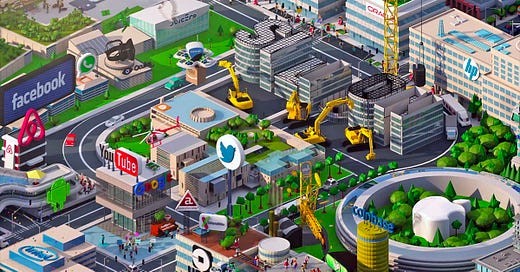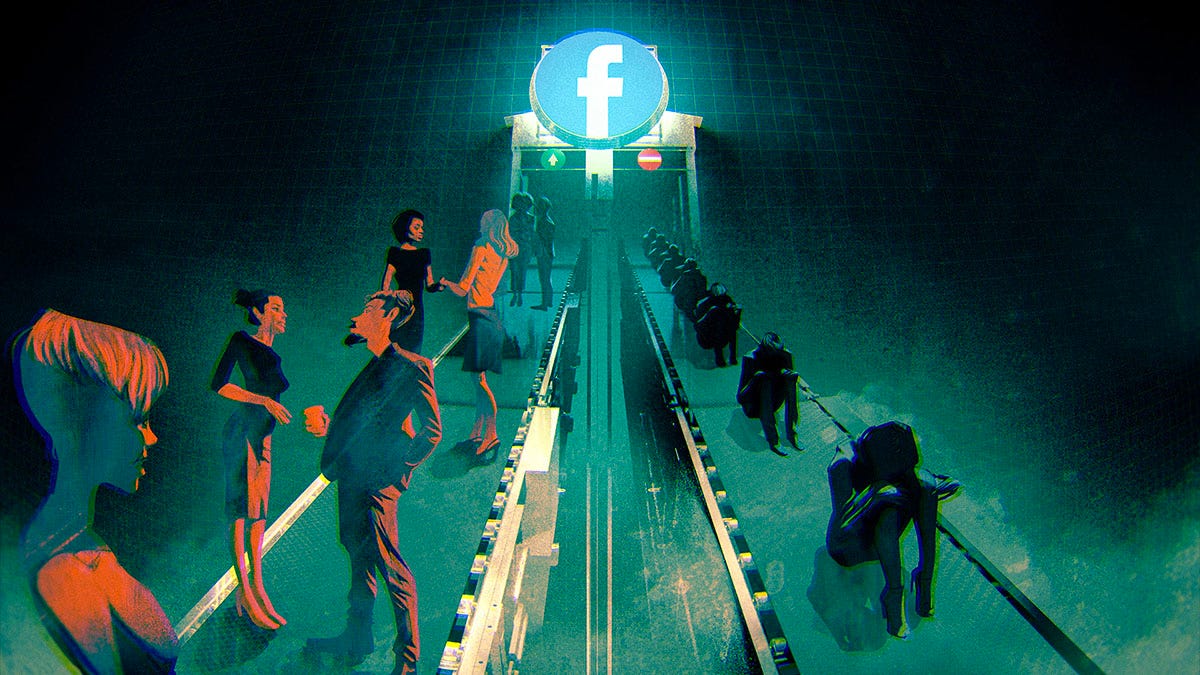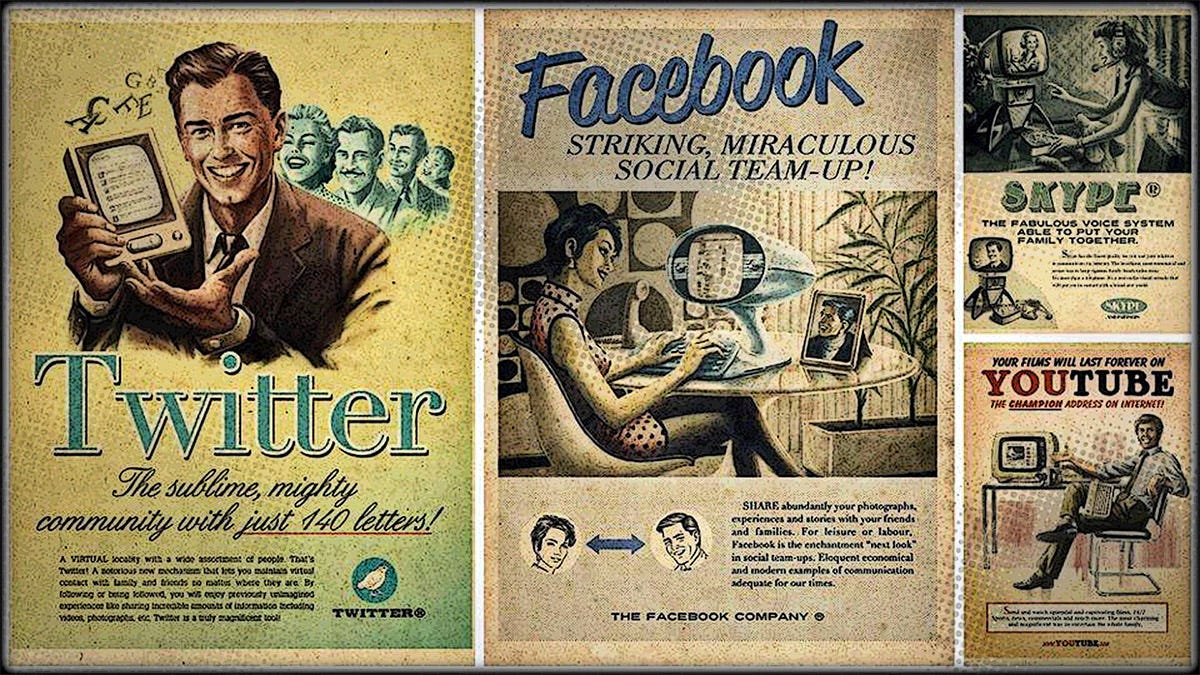the spectacular failure of silicon valley
We were promised a utopian future. What we got was tech bros reinventing a lot of things we already had, but worse, more exploitative, and less safe.
Silicon Valley is an amazing place. It’s where the world’s best engineers and visionary entrepreneurs work day and night to solve humanity’s problems with new technology, disrupting the troublesome old order with world-altering innovations. No, wait, sorry, I was reading the promotional brochure. What I meant to say is that it’s a place where a fairly tight-knit group of hustlers and slick operators pilfer billions from funds trying to post enormous returns for their investors, creating market bubbles thanks to cheap loans and complete disregard for laws, rules, and consequences, and kept doing that no matter the fallout until interest rate hikes started to spook them.
It’s important to note that Silicon Valley floats on a cloud of hype so powerful that one of the most common refrains across the world, even for the rest of the United States, is that their goal is to build their own version of it. Los Angeles has the Silicon Beach. Salt Lake City has Silicon Slopes. Major metros in Ohio and Texas are trying to create the so-called Silicon Prairie. In Russia, there’s the Skolkovo Innovation Center outside of Moscow. Canada is trying to lure techies to come to Toronto and Vancouver. New Zealand is heavily recruiting engineers to Auckland. In short, claiming that you have a Silicon Valley of your own is a matter of prestige. But is it a good idea?
If we’re talking about the old Valley, the one which was home to companies which are responsible for modern computing and the web, then absolutely. Few industries had a more profound and positive effect on the modern world than tech. But if we’re talking about the modern Silicon Valley, the one ruled by the PayPal Mafia and easy money, and whose biggest products are parasitic middlemen services and manifestos which more or less boil down to “ahem, hedonistic cyberpunk dystopias are good, actually,” then I would very seriously question the commitment to emulate it and calling the end result an innovation hub, because it most certainly won’t be.
With everything from social media, to smoking cessation, to more convenient transit, it’s now a rare delight when an objectively good service comes out of the Valley and doesn’t end in scandals, or hoaxes, or embarrassment. Remember how Theranos was going to revolutionize medical testing only to end up being a giant fraud which lied to patients and investors? Or when Juicero was going to solve the problem of how we’d get juice with a $400 machine for a bag we could just wring out? Or when FTX would revolutionize money with crypto? Or how WeWork was going to change how we live? Once is an accident. Twice is a coincidence. A hundred times? It’s a pattern.
Hold on now, you might say, isn’t this a bit harsh? Actually no, it’s not. We’re been fed line after line about how the new hotness from NorCal is about to solve some problem afflicting hundreds of millions, if not billions of people, gave the idea a decade or two on top of billions in cash, and are now seeing some less than stellar results. Facebook was supposedly going to connect the world and encourage global understanding. But instead, it got Boomers and Gen X addicted to a steady diet of fake news, culture war clickbait, and confirmation bias. Twitter was going to revolutionize news, yet, in reality, it supercharged propaganda campaigns by shady governments.
And these are not the only offenders. All of social media has backfired in just as many ways as it succeeded. It started countless careers and gave people chances that just wouldn’t be possible without it. It also greatly contributes to mental health problems, enables harassment on a truly massive scale while also allowing it to escape into the real world in devastating ways since we’ve been pushed into linking our real names to our online personas, and is rife with scams on top of horrors like sextortion of minors, revenge porn — both real and created by AI — and recruitment for terrorists. The only things that matter are ad revenue and growth. Consequences? What are those?
It may enable immensely talented creators to stand out in ways that traditional media would’ve never allowed, and give voices to people too often excluded from important conversations, but it does so at the cost of also empowering grifters to jump on viral trends, no matter how foul, controversial, astroturfed, or performative and harmful, to lure in monetizable followers. And if that wasn’t enough, it also gave humanity’s most miserable, angriest, and hateful members megaphones and global platforms. Instead of the connected and friendly world we were promised, we spend much of our time on social media more or less drowning in outrage and misery for others’ profit.
Instead of the Information Age, we ended up with what writer William Saletan calls the Content Age. Rather than accurate, vetted, detailed news coming to us at the speed of light, we ended up with tsunamis of content optimized for clicks. Sure, we do have more data than ever at our fingertips, but a great deal of that data is ads and lies that are meant for us to click and buy stuff, not actually learn anything because that’s not as profitable. Rather than a web by people for people, we ended up with a web for ads and by advertisers, where us actually learning things besides when a certain place to spend money is open, or where to buy a thing, is just a happy side-effect.
We could go on. Uber and Lyft replicated what I saw in my childhood as desperate ex-Soviets tried to survive by taking money from strangers to give them a ride, then more or less pretended that they reinvented employment and transit. In reality, they simply ignored the relevant laws while blackmailing governments. AirBnB, the other “sharing economy,” darling, broke rental markets in popular cities across the world, inciting fury from residents tired of having their neighborhoods turn into unlicensed and untaxed tourist resorts while rents and mortgages exploded, with unit after unit taken off the market to become AirBnBs while the company shrugged at the criticism.
But hey, at least we have streaming and online dating right? Yes, streaming which has become a confusing, fragmented mess where you’ll need to buy multiple increasingly expensive subscriptions just to watch all the shows you want. And online dating, one of the most hated experiences of anyone who is single and doesn’t want to be. We’ve vastly increased screen time at the expense of face time, and the results are awkward and frustrating to say the least. People are getting lonelier, more isolated, looking over their shoulders for a robot or app to unceremoniously kick them to the curb to starve while cost of living soars, wages stagnate, and safety nets keep getting cut.
Again and again, we’re told that the tech world is working on the glorious Singularity, when machines will exceed humans and allow for incredible advances, and VCs like a16z or the Vision Fund are trying to invest in this revolutionary future. And then they end up investing in crypto, subleasing, delivery vans, digital middlemen, and robot-made pizzas, slap an app or two on top, call them “disruptive tech companies” for a valuation premium, and pretend they’re solving everything from world hunger to the future of space exploration. (Though, it should be noted for fairness that there are a number of companies legitimately tackling these challenges.)
All of this sort of worked when billions borrowed at near zero interest rates gave us a hefty discount so we could use all these services as they tried to monopolize markets with an app and contractors. However, with far higher rates and $69 billion in debt for these companies up for refinancing, that party is probably over too. You’ve probably already noticed your delivery fees and tips exploding in anticipation, and wondered if it’s still worth it to use these services. Investors are also probably wondering how they will get the massive returns they’ve been now accustomed to by these supposed tech companies without free money and with a far more critical press.
It wasn’t so long ago when we hotly debated all the good that technology from Silicon Valley was going to do for us and the world at large. How they’d banish today’s brutal, sclerotic routines and create new jobs that will finally give us meaning and a future we have dreamed of since the atompunk age of sci-fi. Everything was “revolutionary” and “disruptive” according to TechCrunch and Hacker News essays often echoed by tech reporters who honestly wanted to give the future a chance. During the Arab Spring, a random like on Facebook seemed like it could bring down tyrants and save the world. Today, it’s the “thoughts and prayers” of political activism.
There’s so much frustration and passion here not because the majority of people out there want Silicon Valley to fail. Just the opposite. We want these ideas to succeed, to deliver on their admittedly lofty and cool promises. We want self-driving cars, of both the flying and ground variety, four day workweeks, AI assistants, and spaceships that casually tour the solar system, as well as biomedical revolutions that could give us all longer and healthier lives. We told them this is what we wanted and were assured that the utopian future was well on its way, backed by the world’s smartest, most visionary funds, investors, and engineers. And what arrived was… very much not that.
As the joke goes, we wanted robots to take care of spreadsheets and paper pushing so we could focus on art, music, and research, and tech bros gave us machines that do art and music so we could focus on spreadsheets and paper pushing. This is why a number of pundits love to ridicule the current state of affairs as techno-feudalism and note that even the services we’re now used to are getting worse and worse to drain us of any disposable cash for investors desperate for all that double digit year-over-year growth to which they’ve become addicted. The end result is that using apps we once to enjoyed suddenly feels like a chore, or an increasingly expensive gamble.
Even worse, when we look at services like Uber and Doordash finally turning a profit after a decade to a decade and a half of heavily subsidizing every purchase with the truckloads of cash given to them by investors and banks, they’re only starting to get in the black because they formed oligopolies with their competitors and people have been accustomed to using their apps. Likewise, Google is responsible for 9 out of 10 searches, and Meta’s platforms dominate social communication outside of China. In the end, the “disruption” we’ve been handed are monopolies that can devastate entire industries on a whim or by mistake. (Just see news media and Facebook.)
Now, we have the great pivot to AI, which is being developed like all of Silicon Valley’s obsessions: in a vacuum, with no input from the public, and plopped into our laps with zero safeguards and incredible claims that it will change work, life, and art forever, but when pressed for details, the ideas we got were concepts that already exist but worse and with absolutely no demand from literally anyone, like Thunks. Oh, and billions and billions worth of copyright infringement across millions of creators while these AIs are actually losing money. Having seen how this movie plays out twice already, of course people are less than excited and are demanding new laws and regulations.
Just like disruption went from a promise to break through the things that were holding us back, to a meaningless buzzword, to a threat to our livelihoods, dignity, and mental health, the image of Silicon Valley has shifted from a hub of geniuses working to solve the world’s problems to a den of fast-talking shysters who gleefully cause chaos for a truckload of investor cash, dismiss people’s concerns as they struggle to adjust to the new reality imposed on them, and before they can catch their breath, pull the rug out from under them yet again. It’s little wonder why “tech bro” became a pejorative, and why The Next Big Thing is now met with a chorus of groans and blistering skepticism.
![[ world of weird things ]](https://substackcdn.com/image/fetch/w_80,h_80,c_fill,f_auto,q_auto:good,fl_progressive:steep,g_auto/https%3A%2F%2Fsubstack-post-media.s3.amazonaws.com%2Fpublic%2Fimages%2F93728edf-9a13-4b2b-9a33-3ef171b5c8d8_600x600.png)

![[ world of weird things ]](https://substackcdn.com/image/fetch/w_36,h_36,c_fill,f_auto,q_auto:good,fl_progressive:steep,g_auto/https%3A%2F%2Fsubstack-post-media.s3.amazonaws.com%2Fpublic%2Fimages%2F93728edf-9a13-4b2b-9a33-3ef171b5c8d8_600x600.png)



